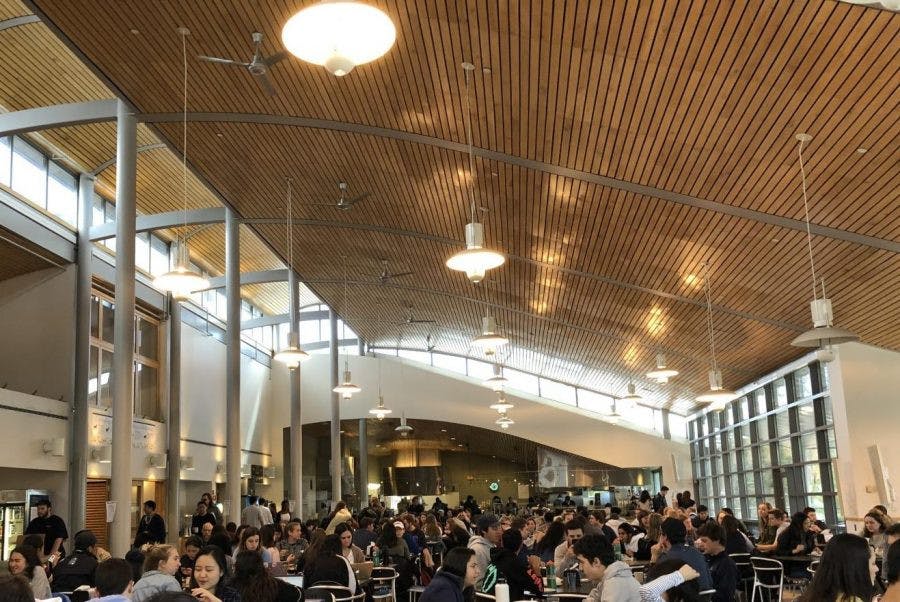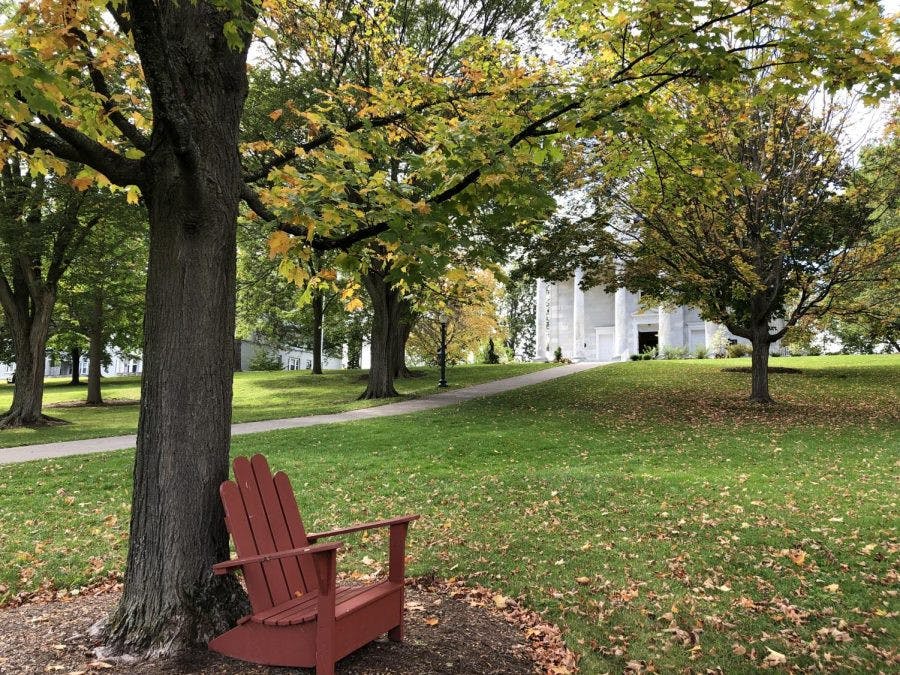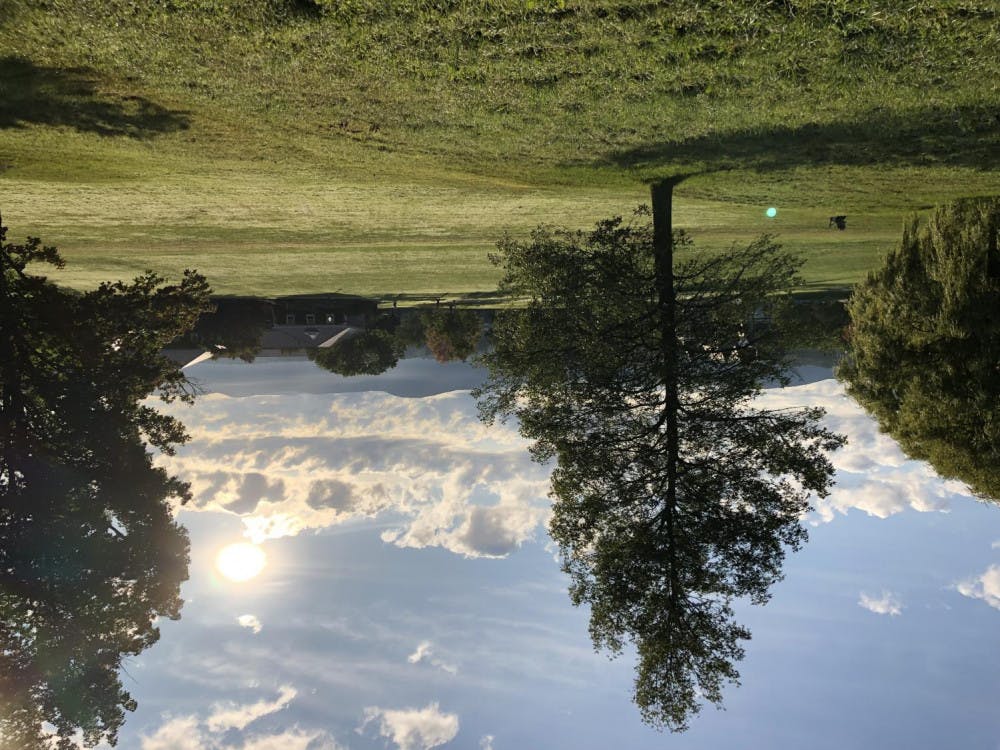Even if Middlebury students return to campus in the fall, it will be to a college transformed in many ways by safety measures and changes related to the Covid-19 pandemic.
Administrators plan to announce a blueprint for next year on Monday, June 22, following colleges across the nation that have made transformative decisions about the fall semesters of their schools. On June 8, President Laurie Patton and Middlebury College Director of Health Services Mark Peluso published a letter in the Addison County Independent addressing the local community about their efforts and intentions regarding the return of students.
This week, screenshots of an email supposedly outlining a plan for fall were widely shared among students, although Sarah Ray, director of media relations, said that the plans detailed in that email cannot be confirmed and that the college will not make any official announcement until next Monday.
Meanwhile, it is clear that no matter what that announcement contains, Middlebury students will see a drastically different fall semester. “There is no scenario in which Fall 2020 will look like Fall 2019,” Provost Jeff Cason said in an email to The Campus.
At a Staff Council meeting on May 20, Patton shared that if a return to campus does occur, she is committed to bringing back as many students as possible. However, she noted, “In Vermont, that will probably not be the number of students we normally have because of a combination of things: summer melt in students depositing, those who are immunocompromised [and] international students because of visa challenges.”
Many of the Schools Abroad, including Germany, France, Brazil, Chile, India and Italy, have already officially been canceled for the fall. Spain will be in operation, while many others are still pending decisions.
Before the college officially reveals whether the Vermont campus will operate remotely or in-person next fall, here’s a look at how life at Middlebury could be different in a coronavirus-altered world.
Health Guidelines
One condition of the campus reopening this fall is the college’s ability to test every single student when they arrive at Middlebury, according to an announcement made by Patton at the May 20 Staff Council town hall.
The college will also need to be capable of isolating and quarantining students who test positive and of continuing testing throughout the semester.
“We have every expectation of being able to test every student upon their return to campus,” Cason said. “The cost is still to be determined.”
In their Addison Independent article, Patton and Peluso state that mandated contract tracing will also be a part of the health plan. They also mention that testing will occur in multiple rounds and that students will need to quarantine before and after traveling to campus.
Other health measures like daily temperature checks, a health pledge and a social distancing commitment may be required of students. The health communications and student life teams are currently designing the health pledge.
Students will also need to agree to sign a personal assumption of risk document, according to Patton.
“To date, in order to be equipped in advance, we have secured a high-volume testing supplier, are close to securing a [personal protective equipment] (PPE) contract, and have excellent options for contact tracing involving the Vermont Department of Health as well as other possible online solutions, which we are vetting now to ensure that they are effective while also maintaining privacy,” Patton and Peluso wrote.
Classroom procedures
“It’s likely that a percentage of our classes will be remote,” Patton said at the town hall. Many of the offices that students may regularly visit, she noted, may continue to operate remotely.
According to Cason, all students will “have courses that will be in person and remote.”
“In person classes will be very different because we will have to have social distancing protocols in place, so classes will need to have fewer students in them,” he said.
“Some [faculty] will teach remotely because of their own health risk factors. Other faculty will teach remotely, or in a hybrid fashion, because it will make sense for them to do that pedagogically,” Cason said.
In the case that students return to campus in the fall, he said, students will be informed of which classes will be in-person and which ones will still be remote. He noted that students who do not return to campus but are enrolled will have priority access to remote-only courses.
Residential life
A safe return to campus will likely involve a rethinking of residential spaces.
“We need to house students in ways that maximize social distancing and minimize spread,” Patton said at the town hall. “We will probably need to provide additional housing that may spread us out farther.”
Patton mentioned that, if Middlebury does reopen, the college would likely have fewer students on campus overall this fall.
“Many of our students will probably be living in singles,” Patton said. She also mentioned “eating in a socially distanced way” and that the college would need to reconcile the communal dining hall system and Vermont health guidelines regarding congregation.

A Campus analysis of currently available residential spaces suggests that, in Spring 2020, there were roughly 2,000 total residential rooms on campus open to students — including singles, doubles and triples. This does not account for rooms like lounges that could potentially be converted to housing.
This means that there were about 2,000 single-occupancy options on campus. In Spring, there were roughly 2,324 students living on campus.
In April of this year, the college addressed its plans to house an increased volume of students — a response to a presumed decrease in students studying abroad — by allowing students to live in properties owned by the college but not currently occupied by students and allowing more students to live off campus.
“We’re still working through use of communal spaces, but enhanced cleaning and sanitation regimens will certainly be in place, as will clear and specific instructions and expectations for how to share such spaces appropriately,” Doucet said. “In all cases, we’ll be guided by the latest public health information.”
Travel, visitors and events

According to Cason, visiting campus next fall would be limited.
“We are likely to have a dramatically reduced number of visitors to campus,” Cason said. “We are also going to need to rely on guidance from the State of Vermont when it comes to restrictions on the number of people who can be in the room at a time.”
It is unclear how exactly this will affect events like concerts, performances and guest lectures, although the current Vermont health guidelines allow a maximum gathering size of 25 people.
Patton and Peluso’s article states that part of a safe return will include “restrictions on travel and visitors, limiting gatherings according to Vermont guidance, social distancing protocols and other preventive measures to reduce the risk of infection, and an evacuation plan.”
The leaked email
An email disseminated among students and community members throughout this week appeared to outline certain protocols for next semester and seemed to suggest a return to campus. Screenshots of the email listed a fully-remote J-Term, a contract that would not allow students to leave campus and a plan to finish the in-person semester before Thanksgiving break as facets of a safe fall semester plan.
Sarah Ray says that the college considers these screenshots to contain “inaccurate information.”
“As we have stated before, Middlebury will release its plans on Monday, June 22. These official plans will be the result of exhaustive research and continual consultation with authorities and expert advisers, including the Vermont Department of Health, Governor Scott’s office, the CDC, and others,” Ray said in an email to The Campus. “Our plans are being informed by perspectives of Middlebury stakeholders through an inclusive process.”
Leaves of absence and enrollment
Uncertainty about next year has brought about an increase in student interest in taking a semester off, according to Doucet. A May 27 email from the Dean of Students revealed that those hoping to take a leave of absence will have to make that decision by July 6, two weeks after the college’s scheduled announcement of a roadmap for the fall semester.
“It’s pretty clear students and families just want to understand their options, so a proactive communication seemed like the best approach,” Doucet said of the decision to announce the option to students.
“The policy on leaves of absence hasn’t changed,” Doucet said. “The only difference from typical years is that we’re asking students to notify us of their intent to take a leave by July 6 to allow us some time to plan accordingly.”
“Inquiries about taking a gap year or deferring to enter with the Feb class have been slightly higher this year, although our official number of approved requests is in line with previous years as of this week,” Nicole Curvin, dean of admissions, said.
Curvin said that the target for incoming students is 640 for Regs and 110 for Febs — “As of today, our incoming deposits are above these targets to hopefully account for any melt that we experience through the summer.”
She cited Covid-19 and concerns about policing and race relations as topics that have been on the minds of incoming international students. Economic hardship as a result of the pandemic, she said, is a major consideration of incoming domestic students.
Incoming students also have until the July 6 deadline to defer for a semester or year.
Digital Director Benjy Renton contributed reporting.

Riley Board '22 is the Editor in Chief of The Campus. She previously served as a Managing Editor, News Editor, Arts & Academics Editor and writer.
She is majoring in Linguistics as an Independent Scholar and is an English minor on the Creative Writing Track.
Board has worked as a writer at Smithsonian Folklife Magazine and as a reporter for The Burlington Free Press. Currently, she is a 2021-2022 Kellogg Fellow working on her linguistics thesis. In her free time, you can find her roller skating in E-Lot or watching the same sitcoms over and over again.




